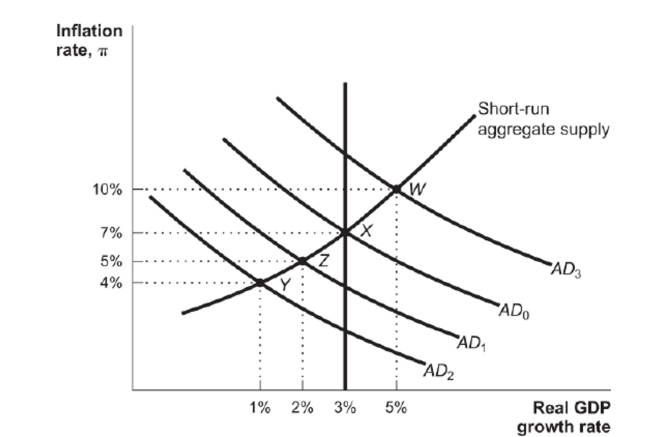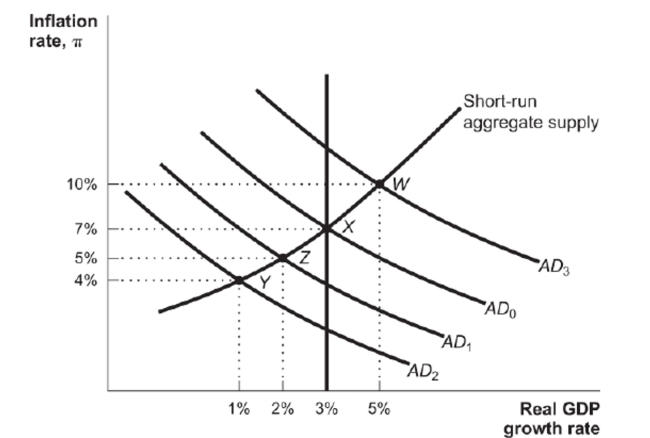Exam 33: Transmission and Amplification Mechanisms
Exam 1: The Big Ideas in Economics103 Questions
Exam 2: The Power of Trade and Comparative Advantage169 Questions
Exam 3: Business Fluctuations: Aggregate Demand and Supply114 Questions
Exam 4: Equilibrium: How Supply and Demand Determine Prices105 Questions
Exam 5: Elasticity and Its Applications153 Questions
Exam 6: Taxes and Subsidies100 Questions
Exam 7: The Price System: Signals, Speculation, and Prediction149 Questions
Exam 8: Price Ceilings and Floors199 Questions
Exam 9: International Trade78 Questions
Exam 10: Externalities: When the Price Is Not Right146 Questions
Exam 11: Costs and Profit Maximization Under Competition126 Questions
Exam 12: Competition and the Invisible Hand29 Questions
Exam 13: Monopoly144 Questions
Exam 14: Price Discrimination and Pricing Strategy152 Questions
Exam 15: Oligopoly and Game Theory127 Questions
Exam 16: Competing for Monopoly: the Economics of Network Goods51 Questions
Exam 17: Monopolistic Competition and Advertising143 Questions
Exam 18: Labor Markets148 Questions
Exam 19: Public Goods and the Tragedy of the Commons153 Questions
Exam 20: Political Economy and Public Choice151 Questions
Exam 21: Economics, Ethics, and Public Policy143 Questions
Exam 22: Managing Incentives140 Questions
Exam 23: Stock Markets and Personal Finance53 Questions
Exam 24: Asymmetric Information: Moral Hazard and Adverse Selection133 Questions
Exam 25: Consumer Choice141 Questions
Exam 26: Gdp and the Measurement of Progress135 Questions
Exam 27: The Wealth of Nations and Economic Growth155 Questions
Exam 28: Growth, Capital Accumulation, and the Economics of Ideas: Catching up Vs the Cutting Edge145 Questions
Exam 29: Saving, Investment, and the Financial System146 Questions
Exam 30: Supply and Demand183 Questions
Exam 31: Unemployment and Labor Force Participation96 Questions
Exam 32: Inflation and the Quantity Theory of Money165 Questions
Exam 33: Transmission and Amplification Mechanisms133 Questions
Exam 34: The Federal Reserve System and Open Market Operations144 Questions
Exam 35: Monetary Policy139 Questions
Exam 36: The Federal Budget: Taxes and Spending158 Questions
Select questions type
Explain why the Federal Reserve did not reduce the growth rate of the money supply in response to rising oil prices in 2007 and 2008.
(Essay)
4.8/5  (39)
(39)
The economy is growing at the Solow growth rate of 3 percent with an inflation rate of 4 percent. If a positive aggregate demand shock occurs and the Fed responds by decreasing the money supply but fails to offset the aggregate demand shock, then in the short run
(Multiple Choice)
4.8/5  (34)
(34)
When a negative shock to aggregate demand occurs, the inflation rate will
(Multiple Choice)
4.9/5  (36)
(36)
When the Fed increases the money supply to counteract a negative real shock
(Multiple Choice)
4.9/5  (32)
(32)
Why did Greenspan receive criticism during the 2008 financial crisis and the recession?
(Multiple Choice)
4.8/5  (47)
(47)
Suppose a central bank targets a fixed rate of inflation. If a negative real shock occurs, then the central bank can use monetary policy to
(Multiple Choice)
4.8/5  (32)
(32)
Briefly explain why the Fed is not very effective when a negative real shock occurs.
(Essay)
4.9/5  (39)
(39)
During the 1970s, the Fed often reacted to negative oil shocks by decreasing the money supply and focusing on
(Multiple Choice)
4.7/5  (20)
(20)
What kind of monetary policy rule did Milton Friedman advocate?
(Multiple Choice)
4.8/5  (38)
(38)
When hit with a real negative economic shock, the Fed must make its policy choice between
(Multiple Choice)
4.8/5  (36)
(36)
Figure: Monetary Policy  Reference: Ref 16-1 (Figure: Monetary Policy) Assume that the economy is initially at Point Y. If the Fed takes the appropriate action with monetary policy, but overestimates how serious the recession is
Reference: Ref 16-1 (Figure: Monetary Policy) Assume that the economy is initially at Point Y. If the Fed takes the appropriate action with monetary policy, but overestimates how serious the recession is
(Multiple Choice)
4.8/5  (35)
(35)
Figure: Monetary Policy  Reference: Ref 16-1 (Figure: Monetary Policy) Assume that the economy is initially at Point Y. In the best case scenario, the Fed will
Reference: Ref 16-1 (Figure: Monetary Policy) Assume that the economy is initially at Point Y. In the best case scenario, the Fed will
(Multiple Choice)
4.8/5  (50)
(50)
Showing 121 - 133 of 133
Filters
- Essay(0)
- Multiple Choice(0)
- Short Answer(0)
- True False(0)
- Matching(0)